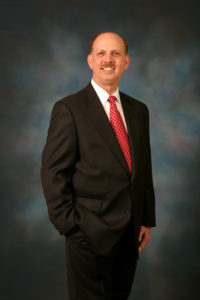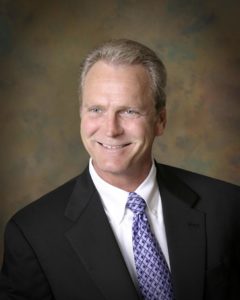Health care law encompasses a wide range of issues. Learn more about regulations, legislation and general information involving health care providers and professionals (physicians, nurses, pharmacists, therapists, mental health counselors, rehab facilities, nursing homes, DME suppliers, medical students and interns, pain management clinics, hospital administrators, etc.) including information regarding the Department of Health, professional boards (Board of Nursing, Board of Pharmacy, Board of Dentistry, Board of Medicine, etc.), DEA, AHCA (Florida Agency for Health Care Administration) and Medicare and Medicaid.
Yale University Agrees to Pay $87,500 to Settle Allegations It Underpaid Female Doctors
 By George F. Indest III, J.D., M.P.A., LL.M., Board Certified by The Florida Bar in Health Law
By George F. Indest III, J.D., M.P.A., LL.M., Board Certified by The Florida Bar in Health Law
Yale University agreed to pay $87,500 to resolve discrimination allegations with the U.S. Department of Labor. The discrimination alleged that the Ivy League school paid four women cardiologists significantly less than their male colleagues from October 2016 to September 2017. While not admitting the allegations, the university agreed to the settlement which will reportedly cover the difference in pay for the women affected, the Office of Federal Contract Compliance Programs (OFCCP) said.
Alleged Pay Discrimination.
The OFCCP first detected the pay disparities during a routine compliance audit of the university’s medical school, the agreement said. The agency found that in 2016, Yale University paid four female cardiologists less than similarly situated male physicians at the School of Medicine’s Cardiovascular Medicine Section.
According to the settlement, Yale hired the doctors as part of the university’s “acquisition of community practices and hospitals associated with the Yale-New Haven Hospital System.” In 2018, Yale allegedly cut the women doctors’ employment category and moved them to a new faculty category. OFCCP claims that the medical school category is supposed to have a uniform compensation structure in place. Click here to read the settlement agreement in full.
In response to the allegations, a Yale was quoted as saying: “The conciliation agreement involves only four employees out of a workforce of over 16,000. OFCCP admitted that it found no pay disparities as to any but these four employees, who held roles in an employment category that has not existed for over two years.”
To read the press release issued by the Department of Labor, click here.
Additionally, read my recent blog on a previous discrimination lawsuit against Yale.
What does this show us? That at least in federal programs and in educational institutions and medical programs receiving federal funds, discrimination is prohibited and action will be taken to remedy it.
Contact Health Law Attorneys Experienced in Representing Health Care Professionals and Providers.
At the Health Law Firm, we provide legal services for physicians, including residents, and fellows, as well as medical students. We also represent other health professionals, clinical professors, dentists, psychologists, psychiatrists, mental health counselors, and other healthcare providers. We represent health facilities, medical groups, and institutions in contracts, sales, mergers, and acquisitions. The lawyers of The Health Law Firm are experienced in complex litigation and both formal and informal administrative hearings. We also represent physicians accused of wrongdoing, physicians, including those involved in clinical research, complaints, and investigations.
To contact The Health Law Firm, please call (407) 331-6620 or toll-free (888) 331-6620 and visit our website at www.ThehealthLawFirm.com.
Sources:
Ottaway, Amanda. “Yale Settles OFCCP Claims That It Underpaid Female Doctors.” Law360. (October 5, 2020). Web.
Smith, Paige. “Yale University Settles DOL Claims of Pay Bias Against Women (1).” Bloomberg Law. (October 2, 2020). Web.
About the Author: George F. Indest III, J.D., M.P.A., LL.M., is Board Certified by The Florida Bar in Health Law. He is the President and Managing Partner of The Health Law Firm, which has a national practice. Its main office is in Orlando, Florida, area. www.TheHealthLawFirm.com The Health Law Firm, 1101 Douglas Ave. Suite 1000, Altamonte Springs, FL 32714, Phone: (407) 331-6620 Toll-Free: (888) 331-6620.
The Health Law Firm” is a registered fictitious business name of and a registered service mark of The Health Law Firm, P.A., a Florida professional service corporation, since 1999.
Copyright © 2020 The Health Law Firm



 By Achal A. Aggarwal, M.B.A., J.D., and George F. Indest III, J.D., M.P.A., LL.M., is Board Certified by The Florida Bar in Health Law
By Achal A. Aggarwal, M.B.A., J.D., and George F. Indest III, J.D., M.P.A., LL.M., is Board Certified by The Florida Bar in Health Law About the Authors: George F. Indest III, J.D., M.P.A., LL.M., is Board Certified by The Florida Bar in Health Law; he is the President and Managing Partner of The Health Law Firm, and Achal A. Aggarwal, M.B.A., J.D. Its main office is in Orlando, Florida, area. www.TheHealthLawFirm.com. The Health Law Firm, 1101 Douglas Ave. Suite 1000, Altamonte Springs, FL 32714, Phone: (407) 331-6620 or Tolle-Free: (888) 331-6620.
About the Authors: George F. Indest III, J.D., M.P.A., LL.M., is Board Certified by The Florida Bar in Health Law; he is the President and Managing Partner of The Health Law Firm, and Achal A. Aggarwal, M.B.A., J.D. Its main office is in Orlando, Florida, area. www.TheHealthLawFirm.com. The Health Law Firm, 1101 Douglas Ave. Suite 1000, Altamonte Springs, FL 32714, Phone: (407) 331-6620 or Tolle-Free: (888) 331-6620. By George F. Indest III, J.D., M.P.A., LL.M., Board Certified by The Florida Bar in Health Law
By George F. Indest III, J.D., M.P.A., LL.M., Board Certified by The Florida Bar in Health Law




